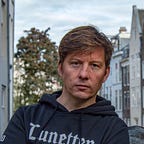Cindy Wu changes the scientific system with her crowdfunding platform for experiments
Cindy Wu is a co-founder of Experiment, a crowdfunding platform for scientific research. During undergrad Cindy was funded by Howard Hughes Medical Institute to work on cell immunotherapies. In 2011 she was on the University of Washington iGEM team where they won the World Championship.
Cindy dropped out of grad school to build Experiment, a Y Combinator backed startup. Experiment is creating a world where anyone can be a scientist and their mission has been profiled leading publications including Wall Street Journal, The Economist, and Science Friday. Bill Gates recognized Experiment as a “solution to close the gap for potentially promising but unfunded projects.”
In 2015 Cindy was included in the 30 under 30 by Forbes.
Cindy grew up in Seattle and now lives in San Francisco. Follow her @cindywu.
Let’s start with the beginning, where does your interest in experimentation come from?
I played with a lot of bugs during recess during kindergarten. I really enjoyed stink bugs, daddy long legs, and collecting leaves that had caterpillar eggs underneath them. My interest in experimentation started with my interest in exploration.
Why the focus on experiments and not on the scientific method, or science as a whole?
We don’t only focus on experiments. We do focus on the scientific method. Currently projects on Experiment are project based meaning that the projects must be able to answer a specific research question. These research questions must either use the scientific method or be a well-defined exploratory project.
We recently interviewed someone from the open science movement, they think the current incentive structure of science should be changed. You came up with a (awesome!) crowdfunding platform for scientific experiments, why?
The incentive structure of science is broken and it will be changed and is changing whether or not we like it.
Denny and I initially came up with Experiment to solve our own problem. We had just published our research where we designed an anthrax therapeutic using a protein folding video game called fold.it in collaboration with the U.S. Army.
We found that anthrax bacteria and staph share the same properties for virulence. We hypothesized that our novel drug could be used to fight staph infections. When I asked my professor where we could get funding for this he said, “The system doesn’t fund people like you.”
The current system only funds people with PhDs that need over $50,000. We were undergrads that needed $5,000, so we decided we’d ask people on the Internet to fund us. We started there.
What are future plans for experiment.com? And how can we help?
We’re on a mission to create a world were anyone can be a scientist. This starts with getting current academics to share their scientific processes openly, publish open access, and collaborate.
A big barrier to this is paywalls on scientific publications. Encouraging scientists you know to only publish open access and share their notes openly online is a great start.
Can you give an example of an experiment that stood out for you the last months? And why?
Sequencing the full genomes of organisms has been a trend we’ve noticed in the last few years. Recently an Assistant Professor at Arizona State University, Melissa Wilson Sayres funded the sequencing of the Gila Monster. The a peptide from the Gila Monster’s venom has been used as a treatment for Type-II Diabetes.
This project is finished fundraising on Experiment, but you can still support the Dr. Sayres’ lab directly through her website. You can also see them on TV here.
